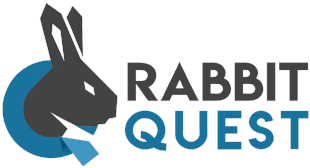Vitality and financial wellbeing: How financial literacy contributes to your employees' wellbeing
We’ve all heard the age-old saying, “Health is wealth.” But, in the contemporary workspace, could the reverse – “Wealth is health” – also hold some weight? Financial stress, often lurking in the shadows, can profoundly affect employee well-being and productivity. The solution? Seamlessly integrating financial education into your overarching wellness strategy. Let’s explore how and why.
Time to read: 5 minutes
1. The hidden stressor: Financial woes
Financial concerns aren't just about numbers in a bank account; they translate into real emotional and physiological stress for employees. When faced with mounting bills, debts, or unexpected financial hiccups, the emotional burden often manifests in forms like anxiety, sleeplessness, and even physical ailments. The ripple effect of this is significant. A mentally preoccupied employee can be less productive, more prone to mistakes, and can even contribute to a dampened team morale. Addressing these monetary concerns, therefore, doesn't only stabilize their financial landscape but also paves the way for a happier, more efficient workplace.
2. Fostering financial literacy: A stepping stone
Financial worries often find their roots in a fundamental lack of understanding of money management. The journey can begin with a few simple steps. Hosting basic workshops on budgeting provides employees with the tools to track and manage their incomes and expenses. Introducing them to the principles of saving teaches the value of delayed gratification and preparedness for unforeseen events. And, by demystifying the world of investments, you equip them with the tools to grow their wealth. As employees become more adept at handling their finances, not only do they experience personal growth, but they also bring a newfound confidence and positivity to their roles.
3. Beyond basics: Delving into financial health
Understanding money is one thing, but molding it to improve one's quality of life is the larger goal.
This entails:
Debt management sessions: The shadow of debt looms large over many. However, with the right strategies, this mountain can be surmounted. Sessions dedicated to understanding, reducing, and managing debt can be life-altering. They can illuminate paths towards freedom from debilitating interest rates and the constant anxiety of repayment.
Retirement planning workshops: The distant future can seem intangible, but preparation for it starts today. By offering tools, insights, and platforms to help employees visualize and meticulously plan for their post-work years, you're granting them the gift of long-term peace of mind. These sessions can help them understand pension plans, and other retirement benefits, ensuring they look forward to their golden years with anticipation, not apprehension.
4. Tailored financial counseling: The power of personal touch
While group sessions and workshops are valuable, they might not address the unique financial challenges each individual faces. Some might be grappling with student loans, others with mortgage decisions, and yet others with investment dilemmas. Offering one-on-one financial counseling sessions allows for a deep dive into each employee's specific monetary landscape. By collaborating with financial experts who can provide customized advice, employees are more likely to feel understood, supported, and empowered. Additionally, personal sessions offer a safe environment for employees to discuss sensitive financial matters they might be hesitant to broach in group settings.
5. Cultivating a culture of openness: Breaking the financial taboo
Money matters have long been a hushed topic in many cultures and settings, often deemed too personal or too divisive for open discussion. This silence, however, can further amplify financial stress as employees might feel isolated in their struggles. By fostering an environment where financial discussions are encouraged, you're paving the way for greater transparency and support. Hosting regular Q&A sessions, creating a platform for anonymous queries, or celebrating 'Financial health days' can stimulate conversations around money. When employees see their peers and leaders openly discuss financial challenges and solutions, it normalizes these conversations and can even lead to community-driven solutions and support systems.
6. Recognizing the broader impact: The symbiosis of financial stability and overall well-being
It's not just about numbers and bank balances; it's about the overall quality of life. Employees who are secure in their financial situations tend to be more engaged, motivated, and, crucially, loyal to their organizations. They can focus on their tasks without the worry, leading to improved productivity and innovation. On the flip side, recognizing and assisting employees in their financial journey fosters goodwill and trust, reinforcing that the organization truly values its workforce not just as employees, but as individuals with dreams, aspirations, and challenges. In the grand scheme, addressing financial well-being translates into a more harmonious, productive, and prosperous organizational ecosystem.
By delving into these in-depth initiatives, organizations not only address immediate financial concerns but also establish a framework for continuous financial growth and stability for their employees.



